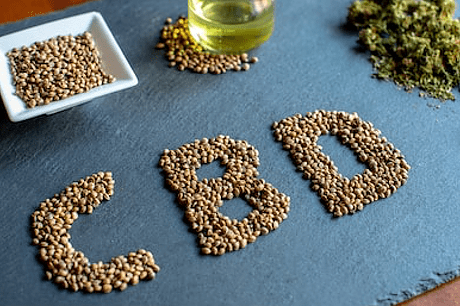When you see top-rated brands such as Premium Jane offer CBD for sale, it is reasonable to believe that the cannabinoid is 100% legal throughout the United States. When the Farm Bill of 2018 legalized the growth of industrial hemp, the CBD industry rejoiced. Surely this was the end of cannabidiol prohibition? Not quite!
Where Does Your CBD Come From?
Chronisseur explains that while CBD is increasingly becoming legal in the US, it’s already legal in Canada.
A significant aspect of whether the CBD you see for sale is legal or not depends on where it came from. At the time of writing, CBD from marijuana is still under Schedule I of the Controlled Substances Act (CSA). This classification means that cannabidiol has a ‘high potential for abuse’ and carries ‘no medical value.’
Hundreds of research studies suggest both statements are nonsense, but there is light at the end of the tunnel. Thanks to the Farm Bill, CBD from industrial hemp has been removed from the CSA and is legal on a federal level. CBD for sale from the marijuana plant remains federally illegal, although you can purchase it if you live in one of the 33 ‘legal’ medicinal weed states and Washington D.C.
In legal terms, any CBD product you see for sale must contain less than 0.3% THC. In case you didn’t know, THC is the most abundant intoxicating compound in marijuana, and is known for producing the famous ‘high.’ Unless it is specifically bred, cannabis contains a relatively low level of CBD and plenty of THC.
There are strains such as Charlotte’s Web that contain up to 20% CBD and practically no THC, but since they are marijuana plants, they remain federally illegal!
The Farm Bill alleviated some of the confusion caused by the 2014 Bill which allowed the use of hemp for research and industrial purposes. However, it banned commercial sales unless the CBD came hemp plant’s seeds and stalks.
Now, the Farm Bill classifies hemp as an ‘agricultural commodity.’ CBD from hemp plants is also federally legal if the hemp has less than 0.3% THC, follows shared state-federal regulations, and licensed cultivators grow it. The 2018 Farm Bill also allowed for the sale, transportation, and possession of CBD derived from hemp. Finally, the Bill removed restrictions on transportation across state lines.
What About State Laws?
While we are not exactly in ‘as clear as mud’ territory, you shouldn’t assume that CBD is legal in your state. Perhaps shockingly, given the size of the market, CBD is only permitted in 47 states at the time of writing. The three states where things become murky are Idaho, Nebraska, and South Dakota. Find out more about CBD laws according to states.
In Idaho, it IS legal to purchase CBD for sale if it contains 0.0% THC, and comes from one of five parts of the cannabis plant:
- Mature stalks
- Oil or cake made from the seeds or achene
- The sterilized seed of a plant incapable of germination
- Fiber produced by the stalks
- Any other salt, mixture, manufacture, compound, preparation or derivative of the mature stalks.
At present, CBD is treated as an illegal substance in Nebraska and South Dakota regardless of whether it comes from the cannabis or hemp plant. You can use CBD from the cannabis plant recreationally in the same 11 states (plus D.C.) where the marijuana plant is also legal for adult use. CBD from the marijuana plant is legal for medicinal use in the states where cannabis is also medically legal.
In states where medical weed remains illegal (barring the three we mentioned where CBD is almost outlawed), it is a legal grey area although, in most jurisdictions, there are no legal issues.
Is it Safe to Purchase CBD?
If you live in the United States and see CBD for sale online, you are legally allowed to buy it as long as it meets federal guidelines. For example, CBD Gummies from Calm by Wellness are the perfect treat to provide you with relief from pain or anxiety.
Keep in mind that the CBD must come from industrial hemp and contain less than 0.3% THC. If you live in Idaho, the CBD must contain 0.0% THC and come from a specific part of the plant. If you live in Nebraska or South Dakota, you are out of luck because it remains an illegal substance in both states.
In September 2018, the DEA announced the rescheduling of Epidiolex, a CBD-based drug from medical marijuana. The drug contains a maximum of 0.1% THC. However, research indicates that hemp or cannabis products that contain a significant number of cannabinoids and terpenes are more effective at treating specific medical symptoms (including for treating clinical depression) than either THC or CBD alone.
If you purchase Epidiolex, you don’t benefit from this ‘entourage effect.’ Therefore, assuming you live in a state where it is legal to do so, it is probably worth considering a full-spectrum CBD product. You can easily find reputable sellers online but remember, make sure the company can legally ship to your address.
The Editorial Team at Healthcare Business Today is made up of skilled healthcare writers and experts, led by our managing editor, Daniel Casciato, who has over 25 years of experience in healthcare writing. Since 1998, we have produced compelling and informative content for numerous publications, establishing ourselves as a trusted resource for health and wellness information. We offer readers access to fresh health, medicine, science, and technology developments and the latest in patient news, emphasizing how these developments affect our lives.











27 thoughts on “What is the Legal Status on the Sale of CBD in the U.S.?”
Comments are closed.